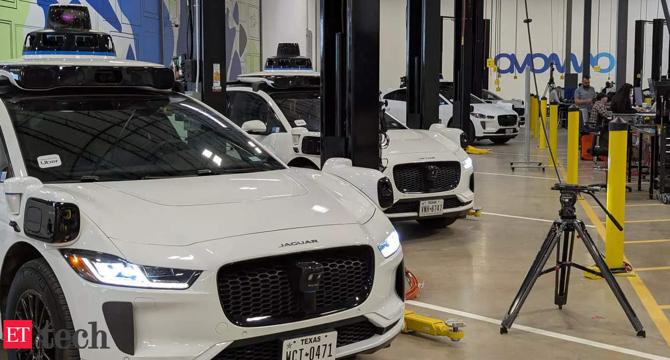Economic Times
3w
389

Image Credit: Economic Times
Uber offers driverless car tech companies a ride to market
- Uber has partnered with Alphabet-owned Waymo to offer autonomous vehicle rides in Austin and Atlanta, positioning itself as a platform for AV tech companies to commercialize their self-driven vehicles.
- The company aims to become the best platform for autonomous technology partners, focusing on maintaining safety, cost-effective hardware, high network utilization, scalable operations, and enabling regulations.
- Different approaches to commercial AV technology include in-house development like Tesla, hybrid models like Waymo partnering with Uber, and Uber's platform-based strategy.
- Tech giants like Amazon-backed Zoox, Ford, and General Motors are investing in building their AV platforms, with GM focusing on personal AVs after an incident with one of its driverless taxis.
- Uber sold its self-driving division to Aurora, shifting focus from its own AV platform, while Elon Musk hinted at Tesla building an autonomous service to compete with Uber.
- Uber believes AVs can solve supply constraints by offering scalable supply, potentially making mobility safer and more efficient by tackling issues like drunk driving and distractions.
- While AVs could enhance Uber's business case by addressing driver-related challenges, a hybrid solution with a mix of human and AV fleets is envisioned for the long term.
- The economics of AV technology pose challenges in new markets like India, where lower vehicle costs could drive greater adoption, with potential solutions coming from developments in China's low-cost electric vehicles.
- Uber's Andrew Macdonald highlighted the need for cost reduction in AVs to make them viable in markets with lower average ride-sharing fares, suggesting potential for scalability in the medium to long term.
- Driver concerns, such as reduced work opportunities and negotiating power, may arise with the rise of AVs, posing challenges for platforms like Uber in maintaining a balance between human and autonomous fleets.
Read Full Article
23 Likes
For uninterrupted reading, download the app